John locke state of nature pdf
The three philosophers, Thomas Hobbes, John Locke, and Jean-Jacques Rousseau were three key thinkers of political philosophy. The three men helped develop the social contract theory into what it is in this modern day and age.
08/04/2016 · John Locke’s greatness as a philosopher is based on his theories on childhood, his work on religious toleration and his concept of the rights of citizens. He helped to make us who we are. If you
Locke’s Perspective of State of Nature! Locke imagines a situation of state of nature where there was no government. He makes an attempt to establish a theory of political obligation on the consideration of what people would invent if they were living in a society without the government.
Social & Political Philosophy Locke—2 if anyone violates the law of nature in the state of nature they put themselves in a state of war with others, who then may punish the offender
All men by nature are equal in that equal right that every man hath to his natural freedom, without being subjected to the will or authority of any other man; being all equal and independent, no one ought to harm another in his life, health, liberty or possessions.
Hobbes and Locke on the Rights of Man . The English philosophers Thomas Hobbes (1588-1679) and John Locke (1632-1704) promulgated divergent views of human rights that reflected both the influence of their respective times and fundamentally different attitudes towards human nature. Their views take root in how the two
John Locke (1632-1704) argued that the law of nature obliged all human beings not to harm “the life, the liberty, health, limb, or goods of another”: The state of nature has a law of nature to govern it, which obliges every one: and reason, which is that law, teaches all mankind, who will but consult it, that being all equal and independent, no one ought to harm another in his life, health
This general comment on the state of nature exhibits Locke’s characteristic confidence in reason. Note that he describes reason as a teacher. Also note that the state of nature does not entitle anyone to harm another person, or to injure life, health, liberty, or possessions.
01/12/2009 · Political philosopher and social psychologist, John Locke was an outspoken supporter of equal rights within a governed society. He espoused the natural rights of man, namely the right to life, liberty and property, and he articulated that every government’s purpose is …
Explain and assess Hobbes’ claim that the ‘state of nature’ would be a war in which ‘every man is enemy to every man’. Hobbes concept of the state of nature that he proposed in the Leviathan was defined merely as a condition of war, without the creation of a civil society he suggested that there would be a war where ‘every man is enemy to every man’.
locke on the state of nature In his Second Treatise of Government (Ch. 2-5), John Locke agrees with Hobbes that the state of nature is a state of perfect freedom and equality.
” For Locke, the state of nature is where humans exist without an established government or social contract. In a since the state of nature is a state of anarchy, of no order. What John Locke believed about the state of nature was that if men could act in a positive way, they could reach order without being absolutely controlled by one person.
John Locke FRS (/ l ɒ k /; 29 August 1632 – 28 October 1704) was an English philosopher and physician, widely regarded as one of the most influential of Enlightenment thinkers and commonly known as the “Father of Liberalism”. Considered one of the first of the British empiricists, following the tradition of Sir Francis Bacon, he is equally important to social contract theory.
for an essay relating Hobbes to Hegel in the consideration of war, which well underlines the distinctions, as well as the way in which war and the state can make sense of individual death, see Philip Windsor, ‘The State and War’, in The Condition of States, ed. Cornelia Navari (Milton Keynes: Open University Press, 1991). Google Scholar
John Locke / d͡ʒ ɒ n l ɒ k / [1], né le 29 août 1632 à Wrington et mort le 28 octobre 1704 à Oates, High Laver (), est un philosophe anglais.Il a vécu à une époque charnière qui voit la fin des guerres de religion, les débuts du rationalisme et une forte opposition à l’absolutisme en Angleterre. Proche du comte de Shaftesbury, Locke est partie prenante à ces débats et aux
Chapter 2. Of the State of Nature. 4. To understand political power aright, and derive it from its original, we must consider what estate all men are naturally in, and that is, a state of perfect freedom to order their actions, and dispose of their possessions and persons as they think fit, within the bounds of the law of Nature, without asking leave or depending upon the will of any other man.
John Lockes state of nature is where humans exist without an established government or a social contract. It is a state of anarchy where there is completely no order or rules that guide human behavior.
Second Treatise John Locke 2: The state of nature different powers, we can get clearer about how the powers differ by looking at the different relationships in which the man stands: as ruler of a commonwealth, father of a family, and captain of a galley. 3. So: I …
“The state of nature” in John Locke Thomas Hobbes and
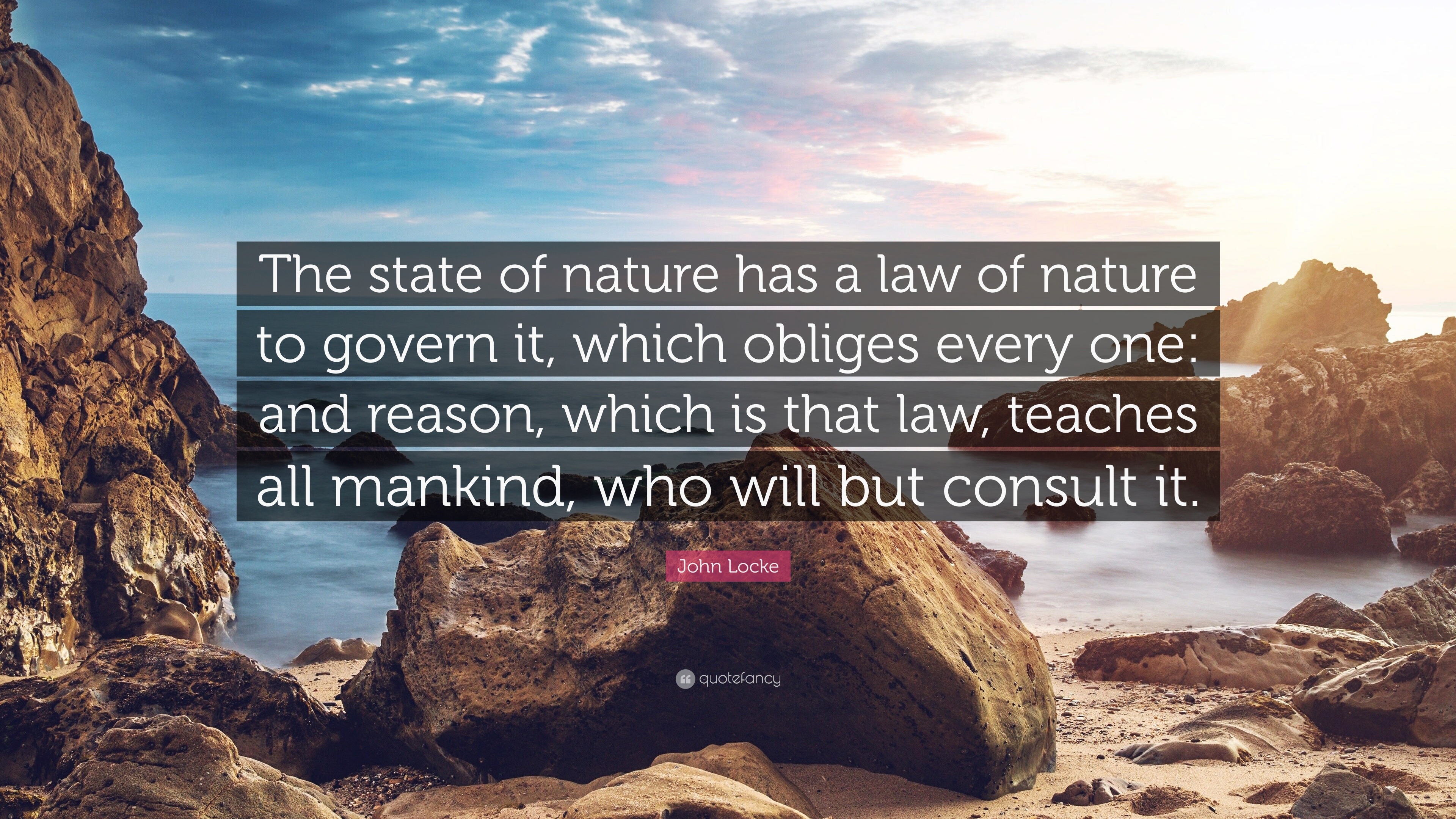
John Locke Wikipedia
John Locke (1637-1704) représente, avec Thomas Hobbes, la figure dominante de la philosophie anglaise du 17 ème siècle. Deux grandes problématiques sont au centre de son œuvre : celle de la connaissance humaine (Essai sur l’entendement humain), et celle de la morale et de la politique (Traités du gouvernement civil).
The state of nature in Locke’s theory represents the beginning of a process in which a state for a liberal, constitutional government is formed. Locke regards the state of nature as a state of total freedom and equality, bound by the law of nature. In order to be able to understand the further discussion on the state of nature, it is essential to understand Locke’s idea of the law of nature.
In Rousseau’s account, laid out in his Discourse on the Origin of Inequality (1755), individuals leave the state of nature by becoming increasingly civilized—that is to say, dependent on one another. The notion of a state of nature, real or hypothetical, was most influential during the 17th and 18th centuries.
Scholarly discussion has treated the account of the state of nature which Locke presents in his Second Treatise as neither an hypothesis nor a description but rather as a fiction.
COMPARING THE SOCIAL CONTRACTS OF HOBBES AND LOCKE THOMAS MOURITZ Abstract Locke and Hobbes both share a vision of the social contract as instrumental in a state’s political stability. However, their respective philosophies were informed by a starkly contrasting vision of human nature. This essay explores the historical context of each
Notes on John Locke’s Second Treatise on Government 1. is something that we can do both in the state of nature and under government. Locke simply asserts that men have natural rights to life, liberty, and health. He thinks it is self-evident to anyone who confers reason that such rights exist. Hence, it is unnecessary to try to derive these rights from any more fundamental rights
c. c c c STATE OF NATURE in SOCIAL CONTRACT THEORY. By. m m III ² ¶B· School Of Excellence in Law Introduction:-Thomas Hobbes (1651), John Locke (1689), and Jean-Jacques Rousseau (1762) are the most famous philosophers of contractarianism.State of nature is a term in political philosophy used in social contract theories to describe the hypothetical condition of humanity before the state’s
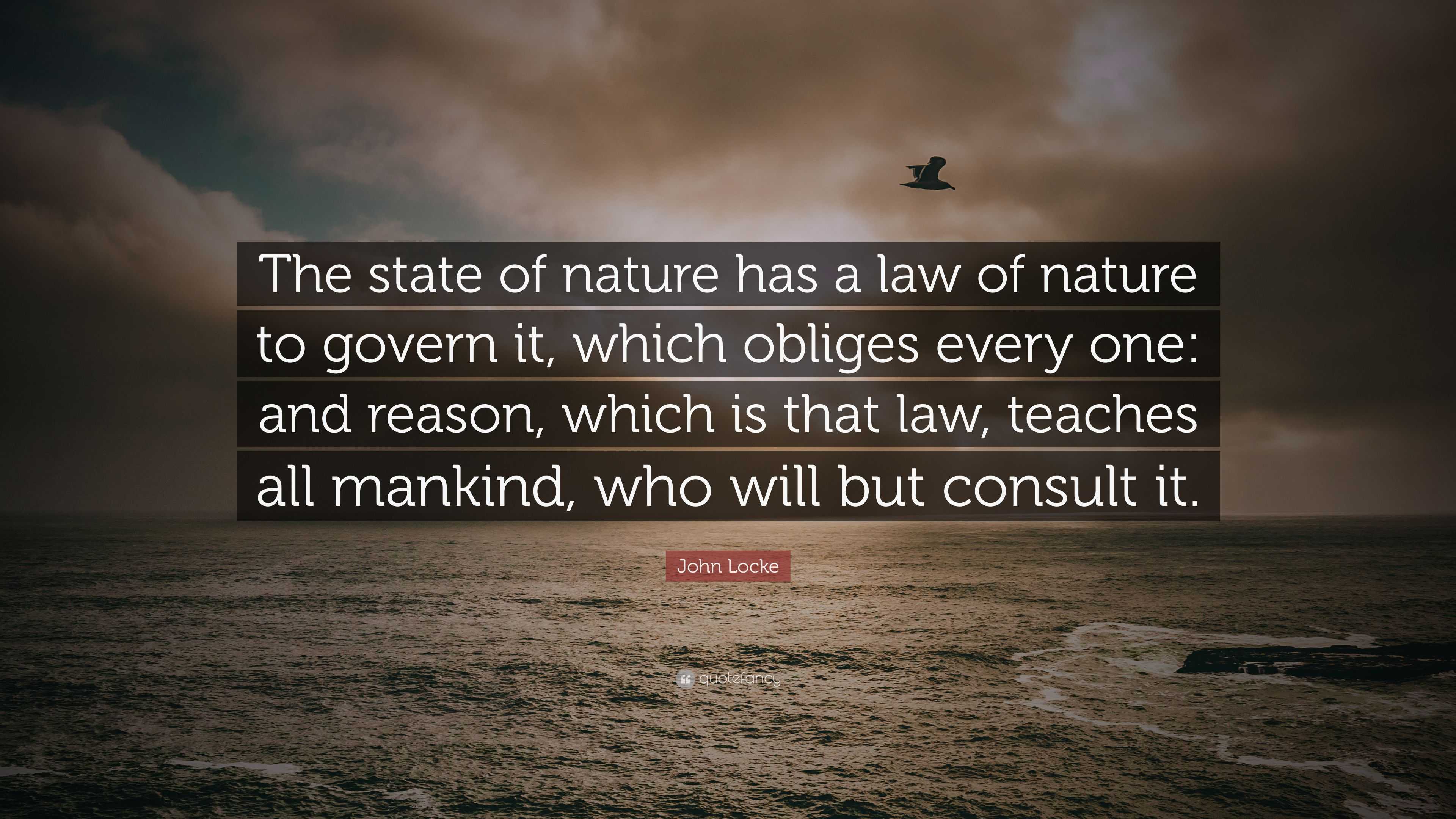
that he was not. In John Locke: Essays on the State of Nature, von Leyden suggests that Locke was influenced by Hobbes in that Hobbes’ ideas caused Locke to explore the idea of Natural Law and Hobbes’ extreme views.32 I will address Locke’s view of the State of Nature keeping Hobbes in mind.
linchpin of Locke’s argument for the social contract and civil government because it is the protection of their property, including their property in their own bodies, that men seek when they decide to abandon the State of Nature. 3. John Locke considered property in the State of Nature as insecure because of three conditions; they are:
Print PDF. JOHN LOCKE and the NATURAL LAW and NATURAL RIGHTS TRADITION Steven Forde, University of North Texas. John Locke is one of the founders of “liberal” political philosophy, the philosophy of individual rights and limited government.
In this state of nature there would be no rules, no one in charge, and no way for people to protect their natural rights. He believed the purpose of government is to end the state of nature and give people certain protections. Most importantly, Locke believed governments should protect people’s natural rights. Social Contract Locke believed a government can only be legitimate, or valid, if
by first addressing the state of nature. Man must have a reason to form the civil society if God is removed from the equation. Unlike Hobbes, however, Locke argues that the state of nature is not a state of anarchy, but a state of perfect equality. It is only when men come into conflict over property that the need for the civil society becomes
Essai philosophique concernant l’entendement humain , où l’on montre quelle est l’étendue de nos connoissances… par M. Locke, traduit de l’anglois par M. Coste. Troisième édition, revue, corrigée et augmentée de quelques additions importantes de l’auteur qui n’ont paru qu’après sa mort, et de quelques remarques du traducteur — 1735 — livre
Levithan, and John Locke in his second treatise in his book, Two Treatises on Government, both talk extensively about human nature.The pair take two different approaches to explaining human nature.The pair take two different approaches to explaining human nature. Hobbes argues that human nature turns the state of nature into a perpetual state of war in which people only focus on self
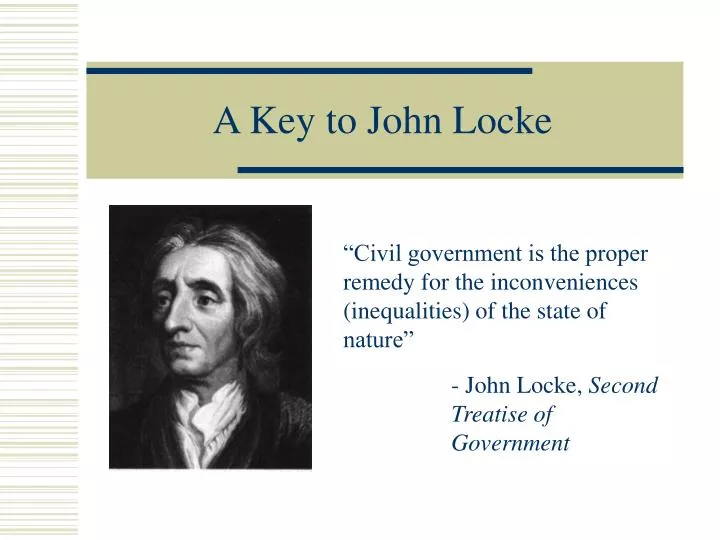
Hegel on “state of nature” At the time Hegel was writing, the expression “state of nature” had been given its meaning by writers like . 1. John Locke, Spinoza, 2Thomas Hobbes, Jean-Jacques Rousseau3. and many others, and was encapsulated image such as the ‘noble savage’s .
30/06/2017 · The Enlightenment philosophy of John Locke made America and Canada what they are today, and helped forge the British Empire too. History reveals a tale of …
John Locke and Thomas Hobbes’ accounts of the state of nature differ greatly with regards to individual security. Both present a stateless scenario but draw completely different conclusions, with inhabitants of Locke’s state of nature having greater security than those in Hobbes’.
THE GROUND OF LOCKE’S LAW OF NATURE By Thomas G. West I. Introduction What is the foundation of John Locke’s political philosophy? This ques-tion is controversial among scholars, to be sure, but it is also relevant for political life today. America’s constitutional democracy was originally
john locke believes that a repblic is the best because if the governmeng fails to do its part and protect the citizens Natural Rights they have the power to over throw/ replace what did Locke and Hobbes say the world would look like in a state of nature
also passive states that can arise from them, such as is the satisfaction or uneasiness arising from any thought.) So that’s my thesis: all our ideas take their beginnings from 18. Essay II John Locke i: Ideas and their origin those two sources—external material things as objects of sensation, and the operations of our own minds as objects of reflection. 5….. When we have taken a full
John Locke the State of Nature Essay. In the chapter five of The Second Treatise of Government and A Letter Concerning Toleration, John Locke expresses his opinion about property. According to the Bible, all human being is the descendants of Adam and Eve, which mean that this world is common to all humankind. However, in order to that the
Locke describes the state of nature and civil society to be opposites of each other, and the need for civil society comes in part from the perpetual existence of the state of nature. This view of the state of nature is partly deduced from Christian belief (unlike Hobbes, …
John Locke, Two Treatises (1689) The Enhanced Edition of John Locke’s Two Treatises of Civil Government (1689, 1764) Introduction. This edition of Locke’s Two Treatises combines the text from the Online Library of Liberty with supplementary material about Locke’s political theory written by modern scholars. These essays discuss his theory of property and natural rights and refer to specific
In the state of nature, as Hobbes depicts it, humans intuitively desire to obtain as much power and “good” as they can, and there are no laws preventing them from harming or killing others to attain what they desire. Thus, the state of nature is a state of constant war, wherein humans live …
Hobbes Concept of the State of Nature Analysis
Locke is usually understood to mean that the formation of political society terminates the state of nature. But Locke gives numerous examples of men in political society who are, at least
John Locke. The state of nature is a concept used in political philosophy by most Enlightenment philosophers, such as Thomas Hobbes and John Locke. The state of nature is a representation of human existence prior to the existence of society understood in a more contemporary sense.
John Locke State of Nature TextJohn Locke – John Locke – Two Treatises of Government: When Shaftesbury failed to reconcile the interests of the king and Parliament, he was dismissed; in 1681 he was arrested, tried, and finally acquitted of treason by a London jury. A year later he fled to Holland, where in 1683 he died. None of Shaftesbury’s known friends was now safe in England. Locke himself, who was being closely
John Locke est un philosophe anglais, l’un des principaux précurseurs des Lumières. Sa théorie de la connaissance est qualifiée d’empiriste car il considère que l’expérience est l’origine de la connaissance. Sa théorie politique est l’une de celles qui fondèrent le libéralisme et …
COMPARING THE SOCIAL CONTRACTS OF HOBBES AND LOCKE
Hobbes vs Locke State of Nature Philosophers

Notes on John Locke’s Second Treatise on Government Second
John Lockes State Of Nature Philosophy Essay
John Locke State of Nature Essay Example
John Locke Two Treatises (1689) Online Library of Liberty
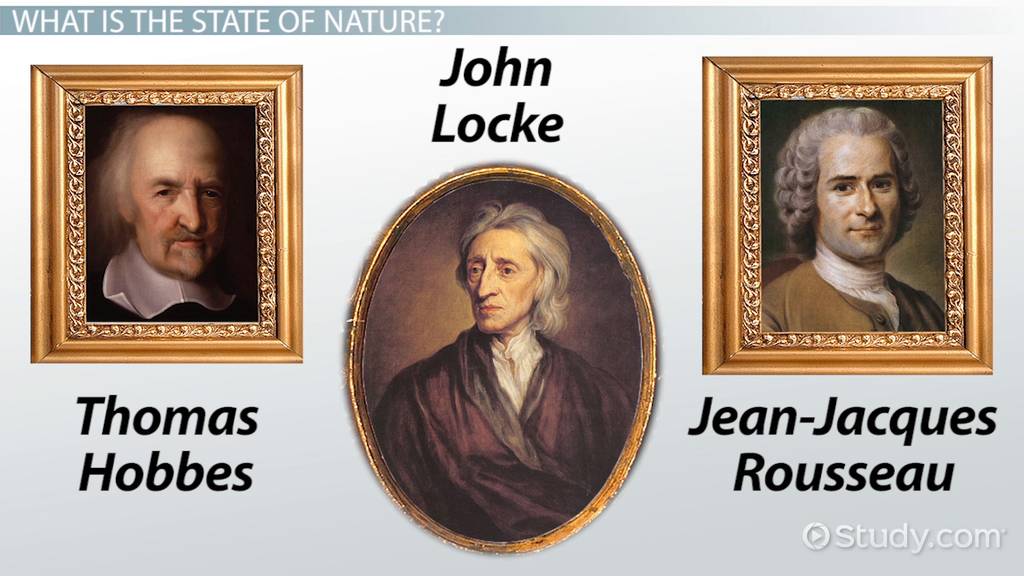

John Locke the State of Nature Essay Example Graduateway
https://en.wikipedia.org/wiki/Leviathan_(Hobbes_book)
An Essay Concerning Human Understanding Book II Ideas
The State of Nature in Social Contract Theory Social
The Social Contract Hobbes Locke and Rousseau
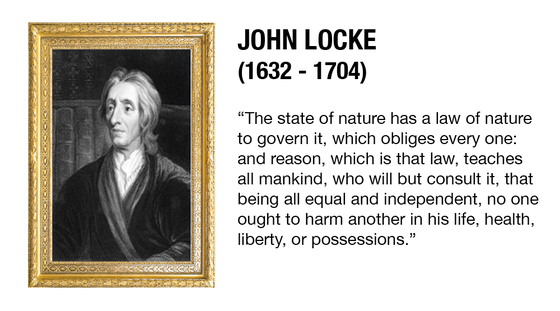
Chapter 2. Of the State of Nature < John Locke Essay On
Essay on John Locke Bartleby
John Locke est un philosophe anglais, l’un des principaux précurseurs des Lumières. Sa théorie de la connaissance est qualifiée d’empiriste car il considère que l’expérience est l’origine de la connaissance. Sa théorie politique est l’une de celles qui fondèrent le libéralisme et …
Hobbes vs Locke State of Nature Philosophers
John Locke FRS (/ l ɒ k /; 29 August 1632 – 28 October 1704) was an English philosopher and physician, widely regarded as one of the most influential of Enlightenment thinkers and commonly known as the “Father of Liberalism”. Considered one of the first of the British empiricists, following the tradition of Sir Francis Bacon, he is equally important to social contract theory.
Hobbes Concept of the State of Nature Analysis
POLITICAL THEORY John Locke – YouTube
John Locke on the rights to life liberty and property of
John Locke est un philosophe anglais, l’un des principaux précurseurs des Lumières. Sa théorie de la connaissance est qualifiée d’empiriste car il considère que l’expérience est l’origine de la connaissance. Sa théorie politique est l’une de celles qui fondèrent le libéralisme et …
What is Social Contract Theory? Sophia Project
Thomas Hobbes State of Nature lawaspect.com
John Locke Natural Law Natural Rights and American
Hobbes and Locke on the Rights of Man . The English philosophers Thomas Hobbes (1588-1679) and John Locke (1632-1704) promulgated divergent views of human rights that reflected both the influence of their respective times and fundamentally different attitudes towards human nature. Their views take root in how the two
Essay on John Locke Bartleby
John Locke State of Nature Essay Example
(DOC) The State of Nature Thomas Hobbes and Jean Jacques
also passive states that can arise from them, such as is the satisfaction or uneasiness arising from any thought.) So that’s my thesis: all our ideas take their beginnings from 18. Essay II John Locke i: Ideas and their origin those two sources—external material things as objects of sensation, and the operations of our own minds as objects of reflection. 5….. When we have taken a full
What is Social Contract Theory? Sophia Project
John Locke — Wikipédia
Social & Political Philosophy Locke—2 if anyone violates the law of nature in the state of nature they put themselves in a state of war with others, who then may punish the offender
COMPARING THE SOCIAL CONTRACTS OF HOBBES AND LOCKE
John Locke on the rights to life liberty and property of
John Locke Babelio
John Locke FRS (/ l ɒ k /; 29 August 1632 – 28 October 1704) was an English philosopher and physician, widely regarded as one of the most influential of Enlightenment thinkers and commonly known as the “Father of Liberalism”. Considered one of the first of the British empiricists, following the tradition of Sir Francis Bacon, he is equally important to social contract theory.
COMPARING THE SOCIAL CONTRACTS OF HOBBES AND LOCKE
John Locke — Wikipédia
Second Treatise of Government Quotes Course Hero
Notes on John Locke’s Second Treatise on Government 1. is something that we can do both in the state of nature and under government. Locke simply asserts that men have natural rights to life, liberty, and health. He thinks it is self-evident to anyone who confers reason that such rights exist. Hence, it is unnecessary to try to derive these rights from any more fundamental rights
Hegel on “state of nature” Ethical Politics
Hobbes Concept of the State of Nature Analysis
Levithan, and John Locke in his second treatise in his book, Two Treatises on Government, both talk extensively about human nature.The pair take two different approaches to explaining human nature.The pair take two different approaches to explaining human nature. Hobbes argues that human nature turns the state of nature into a perpetual state of war in which people only focus on self
(PDF) John Locke’s State of Nature and the Origins of
John Locke / d͡ʒ ɒ n l ɒ k / [1], né le 29 août 1632 à Wrington et mort le 28 octobre 1704 à Oates, High Laver (), est un philosophe anglais.Il a vécu à une époque charnière qui voit la fin des guerres de religion, les débuts du rationalisme et une forte opposition à l’absolutisme en Angleterre. Proche du comte de Shaftesbury, Locke est partie prenante à ces débats et aux
THE GROUND OF LOCKE’S LAW OF NATURE Hillsdale College
John Locke — Wikipédia
Second Treatise of Government Early Modern Texts
Explain and assess Hobbes’ claim that the ‘state of nature’ would be a war in which ‘every man is enemy to every man’. Hobbes concept of the state of nature that he proposed in the Leviathan was defined merely as a condition of war, without the creation of a civil society he suggested that there would be a war where ‘every man is enemy to every man’.
Hobbes and Locke on the Rights of Man MIT OpenCourseWare
John Locke Natural Law Natural Rights and American
All men by nature are equal in that equal right that every man hath to his natural freedom, without being subjected to the will or authority of any other man; being all equal and independent, no one ought to harm another in his life, health, liberty or possessions.
Essai philosophique concernant l’entendement
John Locke on the rights to life liberty and property of
by first addressing the state of nature. Man must have a reason to form the civil society if God is removed from the equation. Unlike Hobbes, however, Locke argues that the state of nature is not a state of anarchy, but a state of perfect equality. It is only when men come into conflict over property that the need for the civil society becomes
Locke’s Perspective of State of Nature Your Article Library